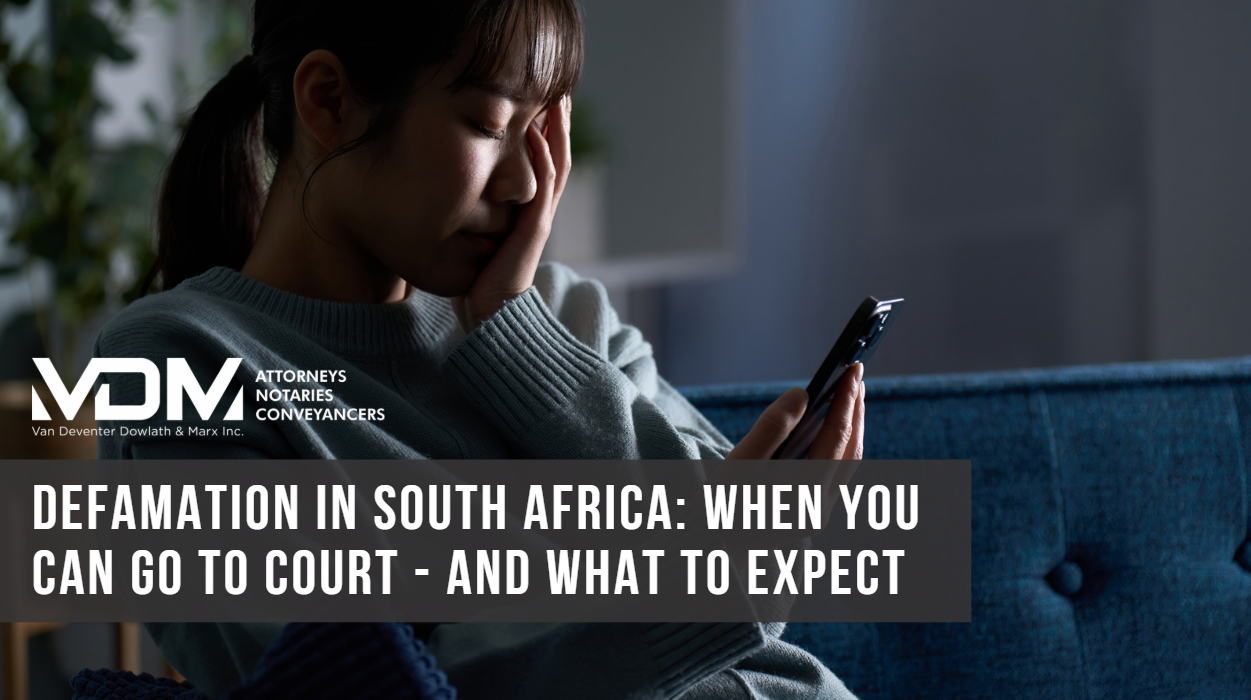
In the age of social media, WhatsApp groups, and online reviews, reputations can be damaged in seconds.
But not every insult or harsh opinion qualifies as defamation - and not every case deserves a lawsuit.
Here’s what you need to know about what counts as defamation, when you can take legal action, and what to expect from the process.
What Is Defamation?
In simple terms, defamation is any statement - spoken (slander) or written (libel) - that unlawfully injures a person’s reputation in the eyes of others.
To succeed in a defamation case, the person bringing the claim (the plaintiff) must prove three main elements:
- Publication – The statement was communicated to someone other than the person it’s about.
- Identification – The statement referred to the plaintiff directly or by implication.
- Defamatory meaning – The words lowered the person’s reputation or made others think less of them.
What Doesn’t Count as Defamation
A statement is not defamatory if:
- It’s true and made in the public interest;
- It’s fair comment or opinion (for example, a reasonable review or opinion piece);
- It was made under privilege, such as in court proceedings or parliament; or
- The person consented to publication.
Example: Saying “I think this service could improve” is opinion. Saying “This company is corrupt” without proof could be defamatory.
When You Can Go to Court
You can approach the courts if the statement was:
- False,
- Published to others, and
- Damaging to your reputation, livelihood, or dignity.
In South Africa, defamation is primarily dealt with through civil courts, not criminal prosecution.
You can sue for damages (money) or for an interdict (order) to stop further publication.
It’s also possible to send a letter of demand before going to court - sometimes this alone resolves the issue, especially for online or media-related defamation.
What to Expect from the Legal Process
Step 1: Consultation and Assessment
Your attorney will assess whether the statement meets the legal test for defamation and whether a court would likely find in your favour.
Often, the first step is gathering proof of publication - screenshots, emails, or witness statements.
Step 2: Letter of Demand or Retraction Request
Before litigation, the attorney may send a formal letter requesting that the defamatory content be removed and an apology or retraction be issued.
This can often resolve the matter without going to court.
Step 3: Summons and Court Action
If the issue isn’t resolved, the plaintiff can issue a summons in the High Court for damages.
The defendant then has the opportunity to raise defences such as truth, privilege, or fair comment.
Step 4: Trial and Outcome
At trial, the court will consider whether the statement was:
- Defamatory,
- Unlawful, and
- Without valid defence.
If the plaintiff wins, the court may award monetary damages or order an apology, correction, or interdict to prevent future harm.
How Much Can You Claim?
There’s no fixed formula for defamation damages. The court looks at:
- The seriousness of the statement,
- The reach of the publication (for example, a viral post vs a small audience),
- The extent of reputational damage, and
- Whether there was malice or intent to harm.
Awards in South Africa are generally moderate, focusing more on vindicating reputation than large payouts.
Practical Tips Before Taking Action
- Don’t respond publicly – It can escalate the issue.
- Keep evidence – Take screenshots and note the publication date.
- Act quickly – Delay can weaken your claim.
- Get legal advice early – An attorney can often resolve the issue faster and prevent reputational harm from spreading.
How VDM Attorneys Can Help
Whether you’ve been defamed or accused of defamation, VDM Attorneys can help you:
- Assess the strength of your case;
- Draft and send cease-and-desist or retraction demands;
- Represent you in High Court proceedings; and
- Manage online reputation risks proactively.
Your reputation is your greatest asset - let’s protect it.
📩 Contact VDM Attorneys for professional guidance before you take the next step.